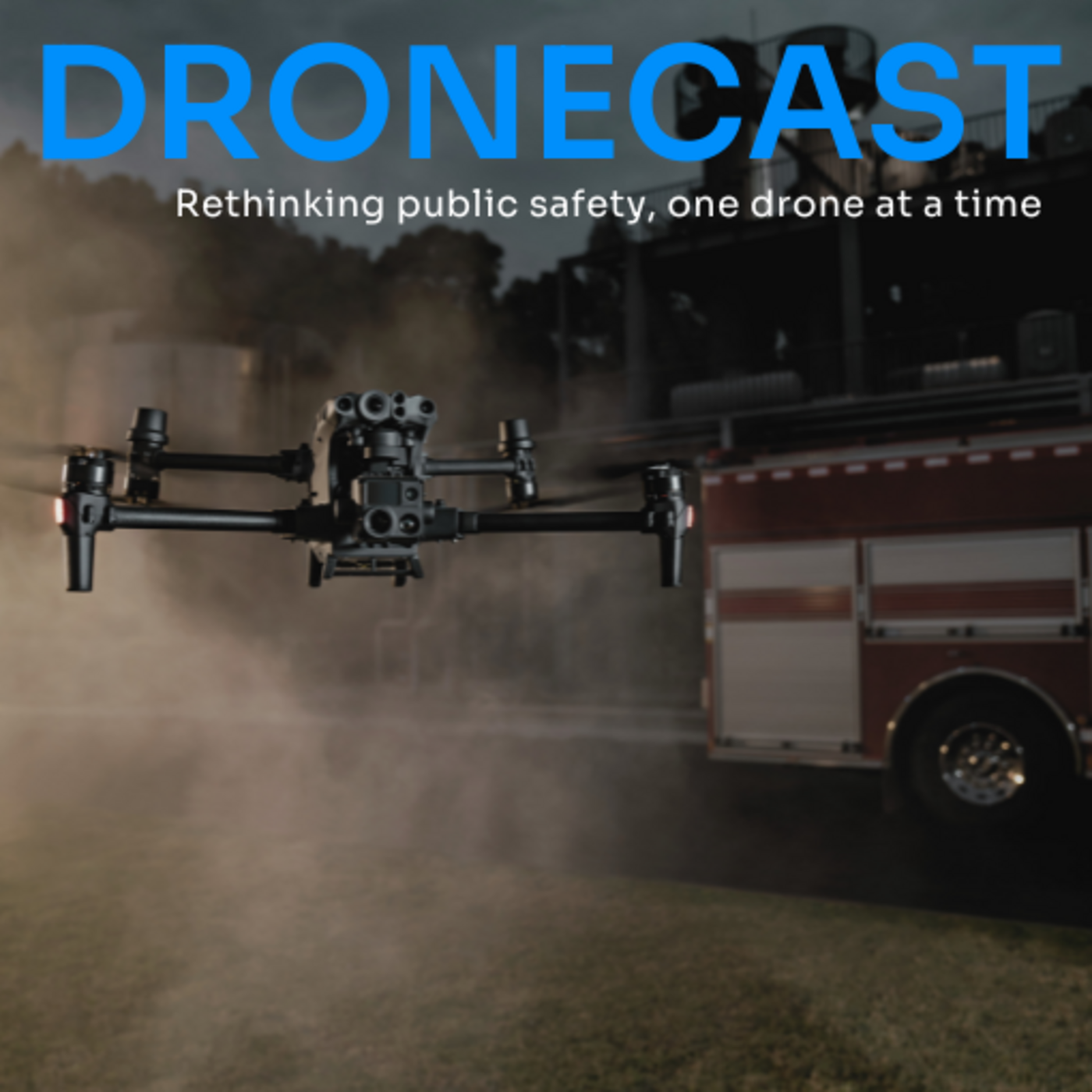From the Streets to the Skies: Amelia Frasure on Drones in Law Enforcement
May 13, 2025

Join host Joe Kearns as he sits down with Amelia Frasure, Solutions Engineer at Skydio, the leading U.S. drone manufacturer and world leader in autonomous flight. Amelia, formerly the UAS Program Manager for the Greenville Police Department and an instructor at the Public Safety UAS Institute, shares expert insights on building and managing effective drone programs in public safety. In this episode, Frasure discusses program development, team training, and overcoming operational challenges in law enforcement drone operations. The conversation also covers practical strategies for securing funding, ensuring compliance, and maintaining operational excellence. Whether you’re launching a new UAS program or optimizing an existing one, this episode offers valuable insights for public safety professionals, drone program managers, and law enforcement leaders looking to maximize the impact of unmanned aircraft technology.
In this episode of DroneCast, host Joe Kearns sits down with Amelia Frasure, Solutions Engineer at Skydio, the leading U.S. drone manufacturer and world leader in autonomous flight. Formerly the UAS Program Manager at the Greenville Police Department and an instructor at the Public Safety UAS Institute, Amelia shares her journey from law enforcement officer to drone program leader, highlighting how drones have evolved from recreational gadgets to essential public safety tools. She provides expert insights on building and managing effective UAS programs, covering key topics such as securing department support, training requirements, airspace management, and mission planning. Additionally, Amelia discusses the challenges of recruiting and retaining skilled drone operators, maintaining pilot proficiency, and adapting to the rapidly changing landscape of drone technology.
With extensive experience in law enforcement and drone operations, Amelia specializes in training agencies to implement successful UAS programs, particularly in search and rescue missions. She explores the future of public safety drone integration, highlighting the potential of Drone as First Responder (DFR) programs and strategies for smaller agencies to scale their operations. Throughout the conversation, she emphasizes the importance of securing funding, demonstrating program value through data collection, and fostering a strong community within the public safety drone sector. Her practical, hands-on approach and dedication to training continue to shape the future of emergency response drone programs nationwide.
What You'll Learn:
- How to launch a successful UAS program from the ground up in a law enforcement setting
- Why leadership buy-in is essential for long-term drone program sustainability
- Best practices for consistent, scenario-based training to maintain pilot proficiency
- How to collect and present data to justify program expansion and secure funding
- The value of specialized drone teams (e.g., search and rescue, tactical support) over generalized use
- Why drone piloting is considered a perishable skill—and how to stay mission-ready
- Strategies for integrating Drone as First Responder (DFR) programs, even in small agencies
- How to build internal support and trust for drone programs within police departments
- Tips for navigating FAA guidelines, airspace restrictions, and operational documentation
- The role of community engagement and public safety storytelling in program success
Helpful Links:
- Fill out the Audience Form here.
- Explore more episodes and insights on the official DroneCast website: dronesense.com/dronecast
- Ready to launch or enhance your drone program? Get Started with DroneSense today!
Episode Highlights:
- [05:34] Establishing Strong Foundations for UAS Programs – A successful drone program requires more than just equipment. Amelia stresses the importance of understanding FAA guidelines, airspace regulations, and proper documentation, even for emergency operations. Clear training protocols and operational guidelines are essential from the start. Department-wide support, especially from leadership, ensures long-term success and credibility within both the department and the community.
- [11:55] Implementing Effective Training Standards – Consistent training is key to maintaining skilled drone operators. Amelia recommends monthly 5-8 hour sessions combining scenario-based exercises with regulation and technology updates. Since drone piloting is a perishable skill, regular practice is crucial. Proper documentation of training also ensures accountability and compliance, keeping operators prepared for real-world missions.
- [26:31] Data-Driven Program Evaluation – Demonstrating a drone program’s value requires strategic data collection. Amelia advises tracking response times, successful rescues, and instances where drones reduced officer risk. Presenting this data to leadership helps secure funding and support. Highlighting missed opportunities due to equipment gaps also strengthens the case for program expansion, proving its impact on safety and efficiency.
- [34:32] Future-Proofing UAS Programs – Specialization is key to advancing public safety drone programs. Amelia suggests creating dedicated teams for tactical missions, search and rescue, and patrol support instead of a general-use approach. This allows operators to refine expertise in key areas while ensuring full operational coverage. Structuring programs this way helps agencies scale effectively and adapt to evolving technology and mission needs.
Dronecast: Rethinking Public Safety, One Drone at a Time Podcast is handcrafted by our friends over at: fame.so
Previous Guests include: Matt Rowland, Jason Burnside
Check out our 3 most downloaded episodes:
Previous Guests include: Matt Rowland, Jason Burnside
Check out our 3 most downloaded episodes: